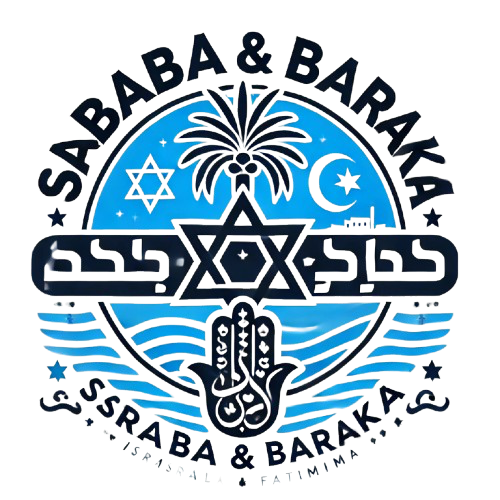By Nadine Cohen
The Mediterranean Sea, a vast body of water that has served as both a connector and divider throughout history, is much more than just a geographical feature. It has long been a cradle of civilization, where cultures have flourished and interacted, shaping the world we know today. From ancient Phoenicians and Greeks to Romans, Arabs, and Berbers, the Mediterranean has been a meeting point for diverse peoples, ideas, and traditions. As we look to the future, the Mediterranean heritage offers a vital foundation for unity—one that transcends political borders and fosters collaboration among its nations.
A Shared History of Exchange
One of the most profound aspects of Mediterranean heritage is the long history of exchange between its nations. The Mediterranean was once the center of the known world, a crossroads where ideas, art, religion, and knowledge were shared and disseminated. From the architectural marvels of ancient Rome to the scientific advancements of Islamic scholars, the Mediterranean has witnessed the flourishing of diverse cultures that enriched one another.
The sea itself served as a conduit for trade, migration, and communication, facilitating cultural diffusion and the exchange of goods and philosophies. Ancient cities like Carthage, Alexandria, and Istanbul were hubs of intellectual and cultural activity, each playing a key role in shaping the Mediterranean’s rich and diverse heritage.
Common Cultural Foundations
Despite the differences in language, religion, and ethnicity among Mediterranean peoples, there are striking commonalities that unite them. Shared culinary traditions, such as the love for olives, bread, and wine, speak to a collective cultural history rooted in agriculture, trade, and the pursuit of enjoyment in daily life. The Mediterranean diet, renowned for its health benefits, is more than just a way of eating—it is a testament to the shared agricultural practices that have sustained its peoples for centuries.
Similarly, Mediterranean art, literature, and music reflect a common thread of creativity and expression that transcends borders. The ancient Greek philosophers, the Roman poets, the Islamic calligraphy artists, and the Spanish painters all contributed to a vast and diverse cultural tapestry that still influences the region today.
Mediterranean Religions: A Bridge of Faiths
Another important aspect of Mediterranean heritage is the shared religious history that binds its people. The Mediterranean is home to the three Abrahamic faiths—Judaism, Christianity, and Islam—which originated in the region and continue to shape its cultural and political landscape.
Religious sites in Jerusalem, Mecca, and the Vatican draw millions of pilgrims each year, embodying the deep spiritual connections that people have to the Mediterranean. While these faiths have often been the source of conflict, they also provide a powerful foundation for dialogue and reconciliation. The shared reverence for sacred places, the common ethical teachings, and the mutual understanding of religious diversity offer opportunities for building bridges of peace and unity in the region.
The Mediterranean as a Model for Regional Cooperation
In an era of increasing nationalism and division, the Mediterranean region has much to offer in terms of cooperation and unity. The region’s rich heritage is a reminder of the importance of mutual respect, shared knowledge, and cross-cultural collaboration. By focusing on the common threads that tie Mediterranean nations together, it is possible to move beyond political tensions and build a more united and peaceful future.
One example of this potential for cooperation is the Mediterranean Union, an initiative aimed at fostering collaboration between Mediterranean countries on issues such as climate change, security, and economic development. By working together, these nations can address shared challenges while respecting their cultural differences and celebrating their unique heritages.
Additionally, cultural diplomacy has emerged as a powerful tool for promoting unity in the Mediterranean. Events like the Mediterranean Film Festival, music festivals, and art exhibitions provide opportunities for people from different backgrounds to come together and celebrate their shared culture. These events foster dialogue, understanding, and appreciation, allowing Mediterranean peoples to see one another as allies rather than adversaries.
A Vision for the Future
The role of Mediterranean heritage in fostering unity is more important than ever. As global challenges—such as climate change, migration, and political instability—become more pronounced, the Mediterranean can serve as a model for how nations with diverse cultures and histories can work together for the common good.
By embracing the shared heritage of the Mediterranean, its peoples can create a future that honors their collective history while building a more inclusive, peaceful, and prosperous region. This unity is not only cultural but also deeply human—rooted in the recognition of our shared humanity, our common struggles, and our shared aspirations for a better future.
Conclusion: Unity in Diversity
The Mediterranean is a region of incredible diversity, yet its heritage offers a unifying force that transcends borders and differences. By looking to the past and celebrating the rich cultural, religious, and historical ties that bind its nations, the Mediterranean can forge a path towards greater unity and cooperation in the 21st century. It is through this collective embrace of heritage—through art, music, religion, and shared traditions—that the Mediterranean can become a beacon of hope and a model for unity in a fractured world.
Sababa and Baraka – for our unity.




Leave a Reply